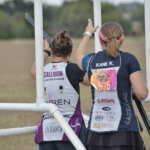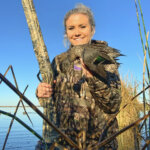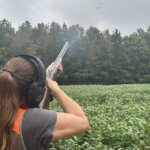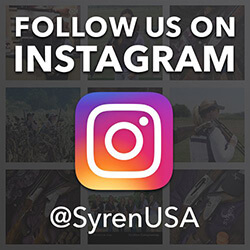In this installment of our Syren Savvy series, we sit down with Kennison Thomason, a collegiate shotgun sports athlete with a deep passion for competition and mentorship. From humble beginnings – from competing in high school to helping coach the next generation through the 4-H Shooting Sports program – Kennison shares her journey and insights for young women looking to follow in her footsteps.
Getting Started – The Early Stage
Can you tell us how you were first introduced to the shooting sports and what early experiences really stuck with you?
I first got into shooting sports during the pandemic in 2020, when the range was one of the few places open. My brother and dad convinced me to join them one day, and I instantly fell in love. I’ll never forget the first time I pulled the trigger. I wasn’t strong enough to hold the gun alone, so my dad helped me. From there, I was hooked on breaking clays.
My favorite memories are the friendships and connections I’ve made along the way – from meeting my first high school team, to coaching middle schoolers, to now competing at the collegiate level. The people and experiences have truly been the best part of my journey.
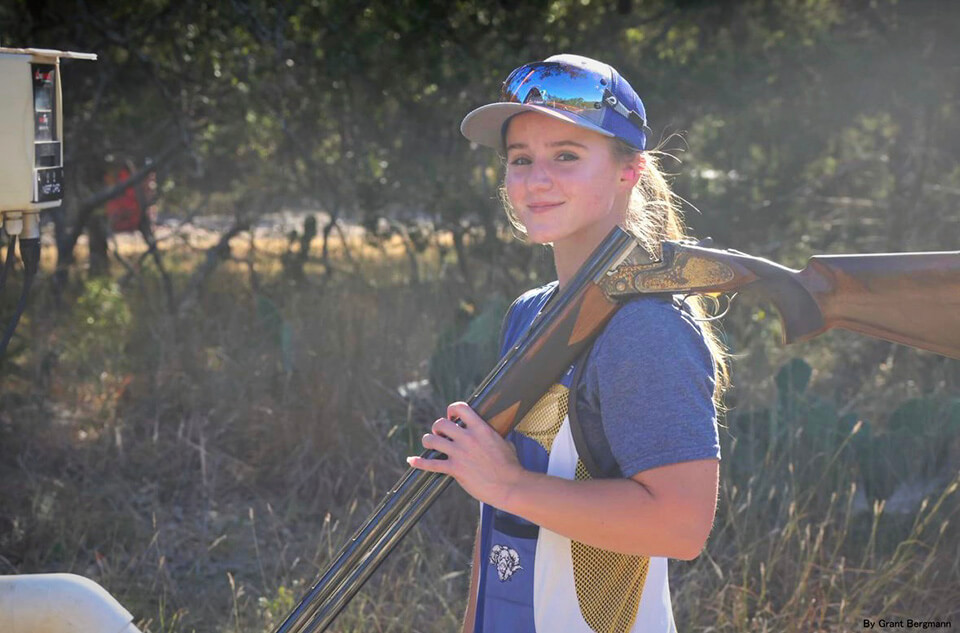
When did you make the switch from casual shooting to competitive ambition? What shifted in your mindset or training?
The first few months were all about learning and having fun, but it wasn’t long before I shot my first NSCA [National Sporting Clays Association] tournament alongside my dad and brother. With my brother already competing, it felt natural for me to embrace shooting as more than just a hobby. Having spent my whole life as a competitive gymnast, the drive to compete was already in my blood. As I started shooting more rounds in practice and focusing on the small details to become more consistent, my mindset shifted. I began to see shooting not just as a weekend activity, but as a serious competitive sport – something I could truly dedicate myself to. Before I knew it, shooting had captured my heart and transformed into both my passion and my future.
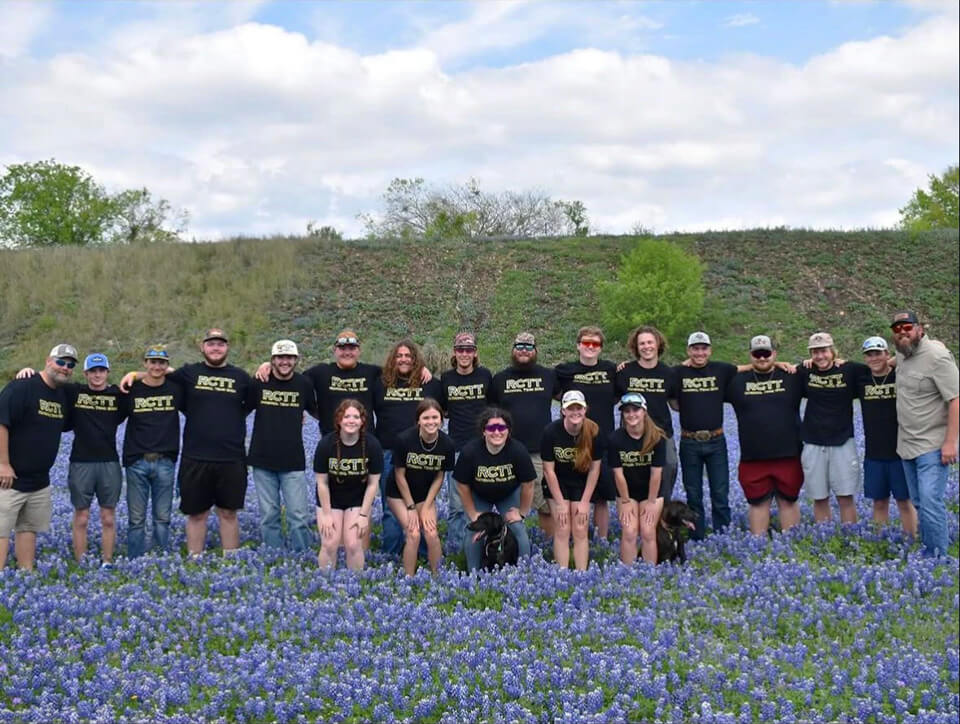
How important is the equipment you use to compete with? And what are some of the most important factors in choosing the best tools for the job?
Equipment is very important, but it depends on what matters most to you. For me, gun fit has made the biggest difference – as a shorter female shooter, a standard gun didn’t work well, so having one fitted specifically to me was a game changer. Besides the gun, lenses are also key. Everyone’s eyes are different, so finding the right frames and lens colors can make shooting more comfortable and effective.
Getting Serious – The Path to Collegiate Competition
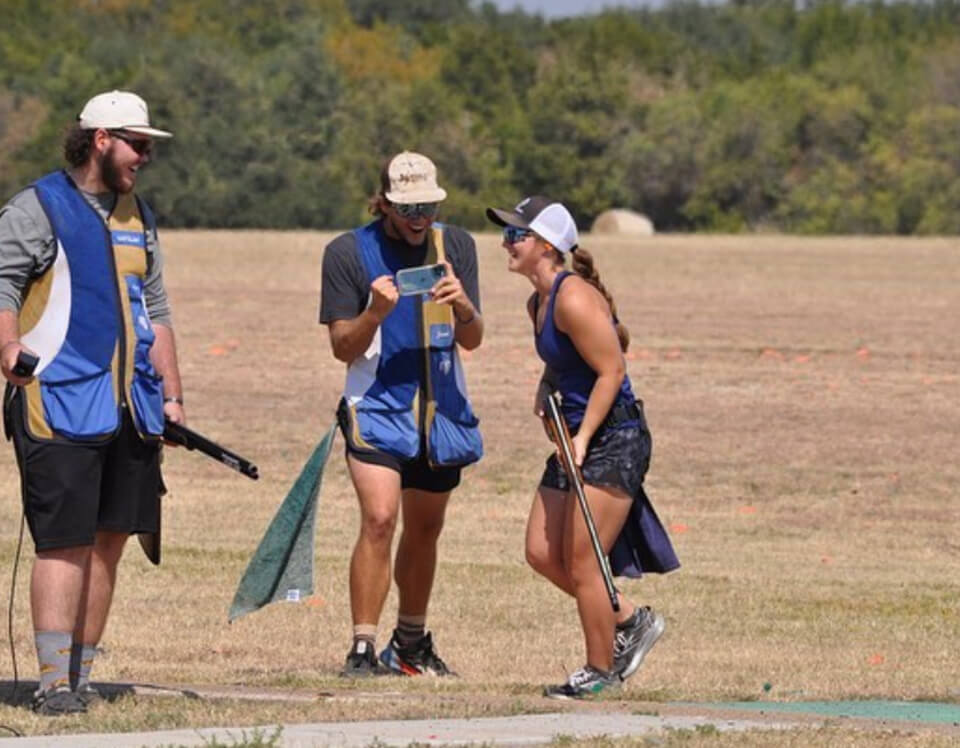
At what point did you realize the shooting sports were something you could continue on with beyond your high school club and compete at a collegiate level?
I started shooting my junior year of high school, so it wasn’t until I began applying to colleges that I realized I could continue my shooting journey. Attending more NSCA shoots opened my eyes to how much further I could go within the sport. I was having too much fun to let it go and loved the idea of being part of a supportive college team. Choosing to pursue both shooting and my degree in physical therapy has been one of the best decisions, and I’m so lucky that I get to follow both of my passions every day.
When choosing the college you wanted to attend, was the shooting team a factor? Tell us a bit about the recruiting process and how you made the team.
When choosing a college, academics and my degree were my top priorities, but having a shooting team was also high on my list. An alum introduced me to Angelo State University, and I learned they had a strong exercise science program and a path to graduate school. What truly sold me was the people – from the warm welcome to small gestures like the coach personally taking the time to show me the physical therapy classrooms because he knew I was interested in the field. Everyone, from the team to the range staff, made me feel supported and at home. I was extremely grateful the coach believed in me and gave me the chance to grow as both an athlete and a person.
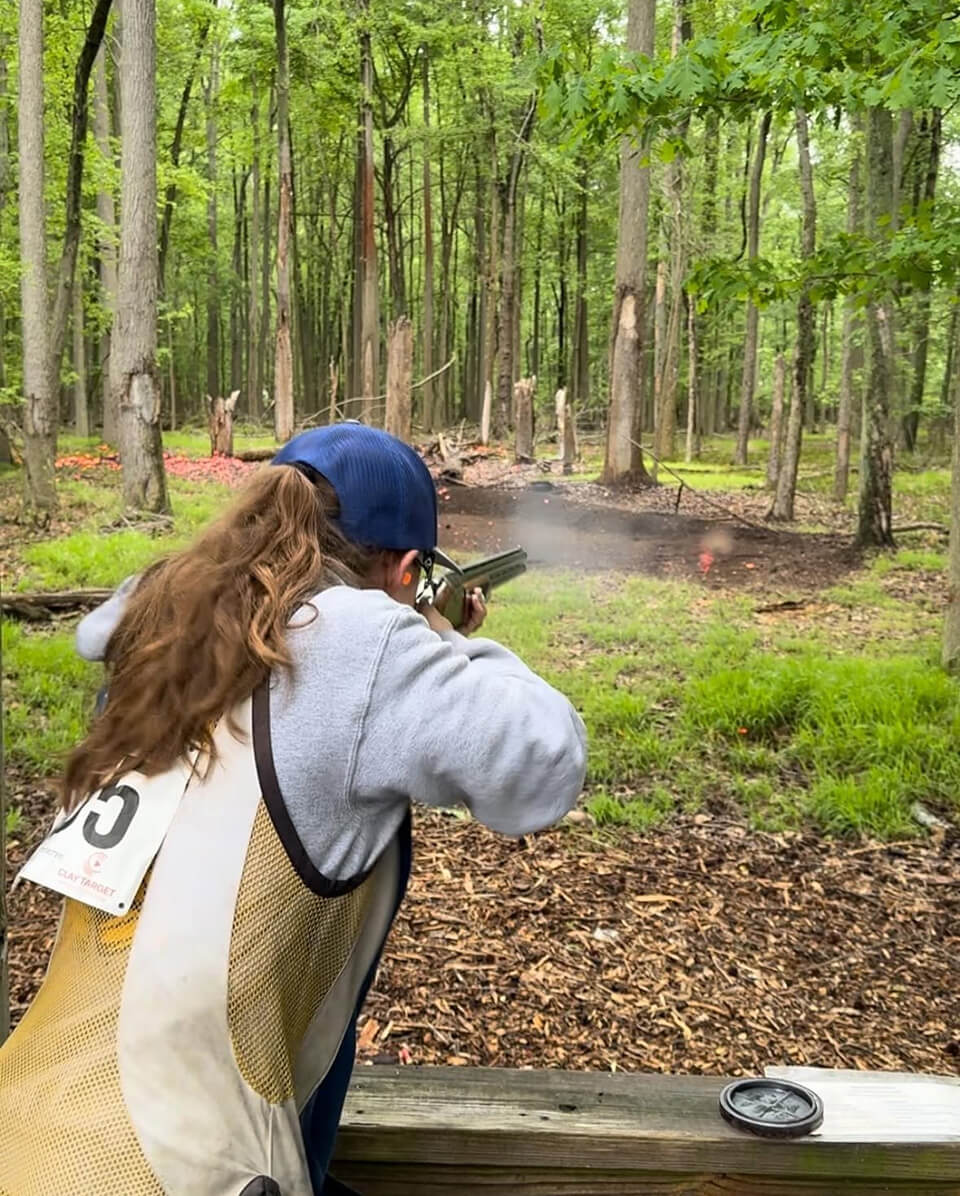
What surprised you the most about the selection process in choosing the right school for you?
What surprised me the most was how many colleges had shooting teams and how welcoming all of them are to young shooters. At the time I was choosing a school, I had only been shooting for a year and a half and didn’t think I would be accepted on a college team with so many experienced athletes. I was amazed and blessed to find a team and a coach who truly wanted me and supported my growth.
Life as a Collegiate Shooter
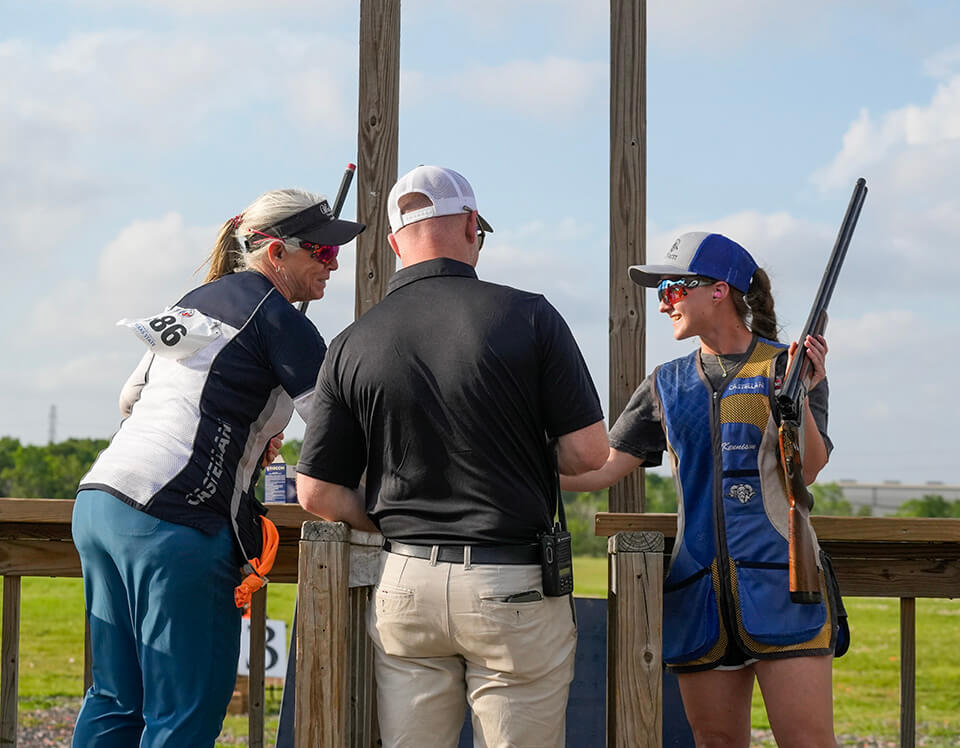
Attending college, pursuing your degree and competing at a high level, these must require a fair bit of balance in your schedule. Can you tell us a bit about your routine and give us a look into the life of a collegiate shooter?
Balance is crucial as a collegiate athlete. Among practices, competitions (both collegiate and NSCA), classes, homework, and other commitments, strong time management is essential. I usually schedule classes in the mornings so I can train in the afternoons, practicing one-to-two days a week in addition to team practices or tournaments on weekends. I fit work, volunteering and studying into gaps between classes and training. Academics always come first, and building good relationships with professors helps when I need flexibility for competitions.
In most college sports there’s a governing body or league that dictates the rules and schedules of the matches between other schools and divisions. Can you tell us a bit about how that is setup and what a typical schedule looks like for a college shooting team?
ACUI is a collegiate league that hosts regional shoots throughout the year and a national competition in March. Most regional shoots last about three days, plus a travel day, so it’s common to miss classes on Thursdays and Fridays. Nationals is nearly a week long, and if it does not fall over spring break, it usually means missing a full week of classes. Travel is typically done as a team, often carpooling and staying in the same hotel. We spend most of the day at the range competing. In addition to ACUI events, some schools host their own collegiate shoots, which are held on weekends.
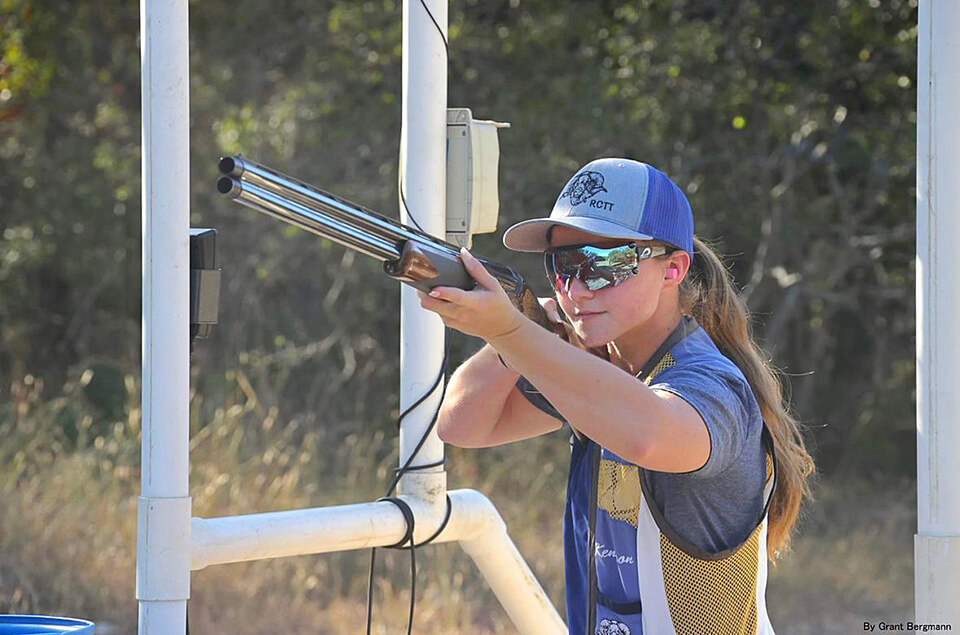
Traveling to competitions with your team is filled with both the highs of victory and the challenges of defeat. Can you share what that journey has been like and any lessons you’ve taken away from your experiences both individually and as a member of the team?
Traveling and competing with my team has taught me that success isn’t just measured by individual scores. When I miss targets, I remind myself that I’m part of something bigger. Every member contributes, whether they’re posting a top score or lifting up the team with support and encouragement. It’s an amazing feeling to help the team win, but it’s just as rewarding to see a teammate crush a station or earn a medal. The moments we spend laughing together after a tough day, practicing side by side and helping each other improve are just as important as standing on the podium. Those shared experiences and bonds have been some of the most valuable lessons and the true heart of the journey.
What’s a funny or a memorable story you can share from your college shooting experience?
One of my most memorable moments was when my birthday fell on the day of our regional shoot this year. Every single teammate made a point to wish me a happy birthday, and they even surprised me with a cake and sang to me. Being away from family in college is hard enough, but spending birthdays and special occasions away from home can be especially difficult. In that moment, I realized just how much my team had become my second family – they made me feel loved and celebrated, and I felt truly blessed to have found a home away from home.
Beyond Graduation – Looking Ahead & Giving Back
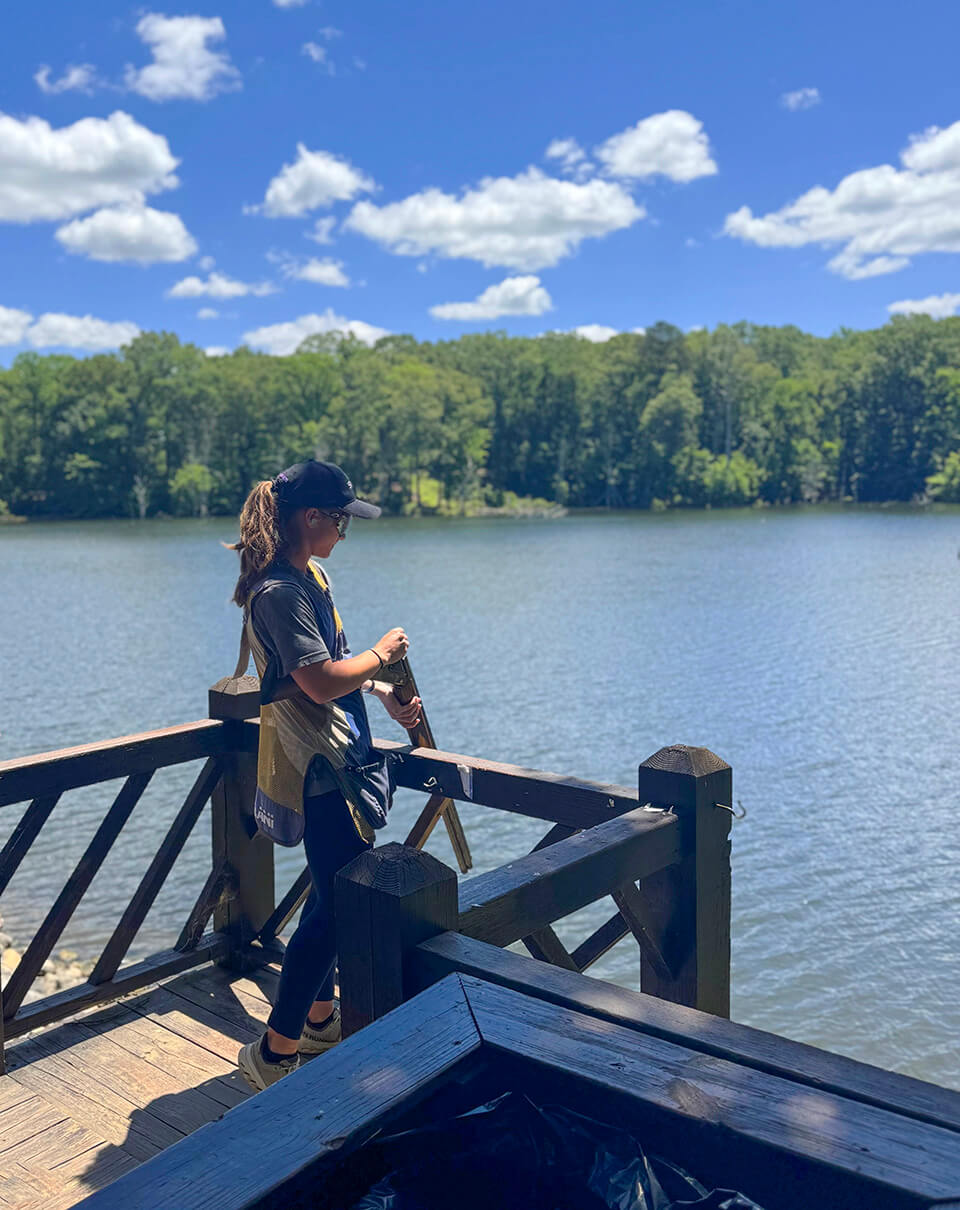
It’s amazing to hear that you volunteer as a coach for the San Angelo’s local 4-H team! Why is volunteering with the local 4-H team important to you? Do you plan to continue coaching or competing after graduation?
I was honored to be asked to coach the local 4-H team. It was a full-circle moment that reminded me how far I’ve come. Volunteering has always been important to me, and getting to share my love for the sport with the next generation was incredibly rewarding. Being able to teach these wonderful young shooters was a blessing, and I hope I left a positive impact on their shooting journeys.
I graduated in May and am currently in a doctorate program for physical therapy, so I do not have as much time to coach or compete. I will still look to shoot local NSCA competitions if I have the time, as well as help any young shooters whenever possible. When I graduate PT school, I plan to keep coaching because it brings me so much joy and is such a meaningful part of my life.
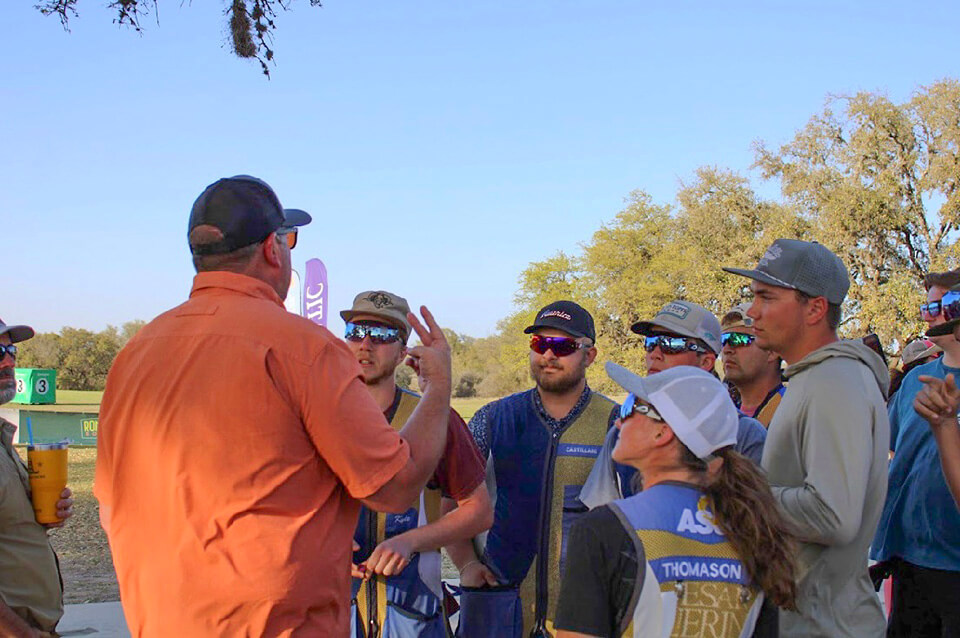
Looking back at when you first got started, what advice would you give to your younger self? What are some of the biggest lessons you’ve learned throughout your journey?
I would tell my younger self, “It’s not as scary as you think. No one cares how good or bad you are. What matters most is connecting with others who share the same passion.”
One of the biggest lessons I’ve learned is that this sport is as much about enjoying the journey as it is about competition. Coming from a background in competitive gymnastics, I used to focus on winning and perfection. But shooting with my dad and brother taught me the value of family, laughter, and learning through mistakes. I’ve come to see “winning” as pushing myself to grow and, most importantly, having fun along the way. This is a sport you can do for life, so enjoy every moment!
In closing, what words of wisdom would you offer to aspiring young women who are considering getting into the shooting sports, or aspire to compete at the collegiate level?
Don’t wait for someone else to push you; take that first step yourself. Ask questions, find mentors you trust and most importantly, have fun.
This sport is so much more than just hitting targets; it’s about building confidence, learning lifelong lessons and joining a community full of supportive, lifelong friends. Everyone at the range wants to see you succeed, and collegiate teams are always excited to welcome new shooters. Believe in yourself and go for it!
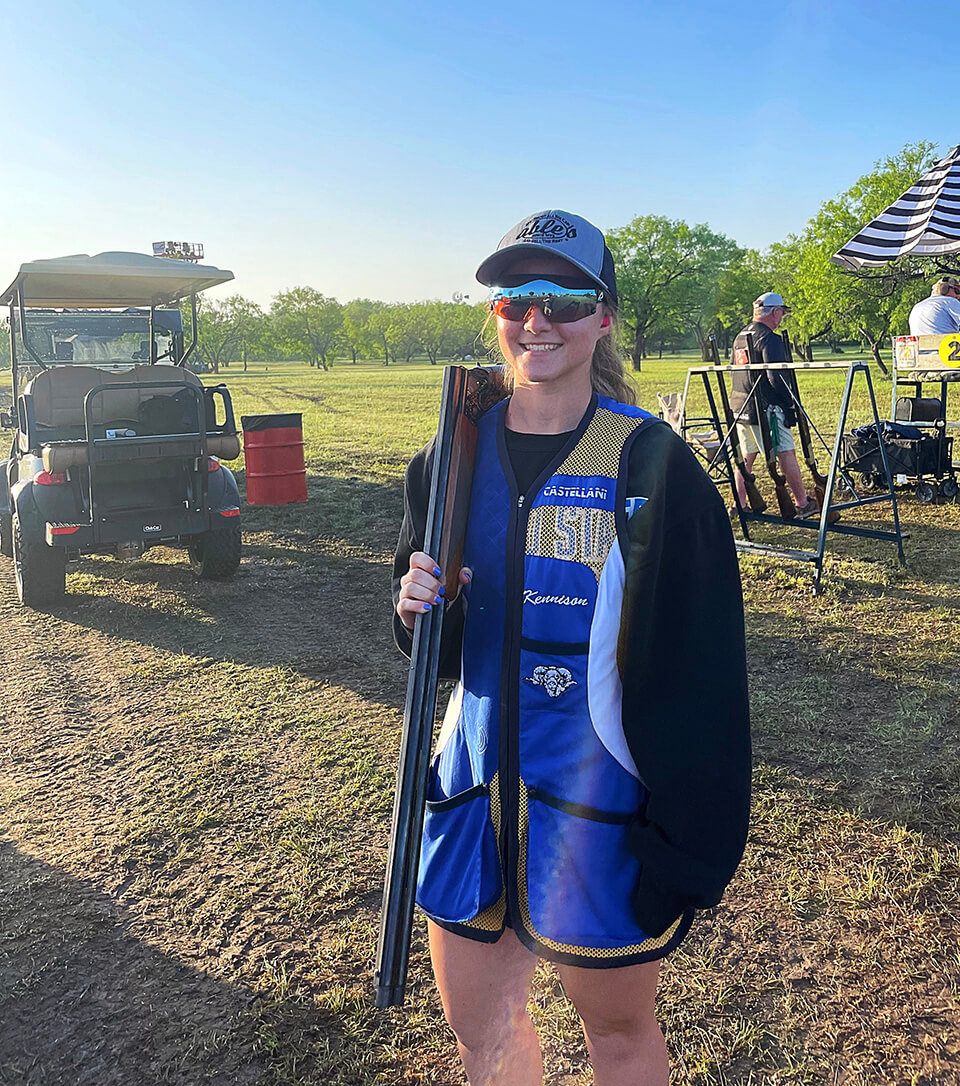
Kennison’s journey reminds us that success in the shooting sports, and in life, is a combination of hard work, community and passion. Whether you’re just getting started or looking to compete at the collegiate level, her story offers the inspiration to aim high.
If you would like to learn more about the various shooting programs, we covered a number of them from youth through college, and even Olympics in a previous article titled “How To Get Started In Youth Shotgun Sports.”
Read more about Kennison Thomas in her bio here on our website.
To learn more about Syren shotguns for Women, and how they can help you achieve your goals of competing at any level, explore the many options available here.
See the first post in the this series, Emily Miller, and her advice for girls and young women who want to pursue collegiate shotgun sports in their futures.
Enjoying this post? Read more just like it on our Syren Savvy Blog HERE.
*This article was originally posted in our column on WomensOutdoorNews.com written by Syren USA and edited by WON Publisher/Editor Barbara Baird.


